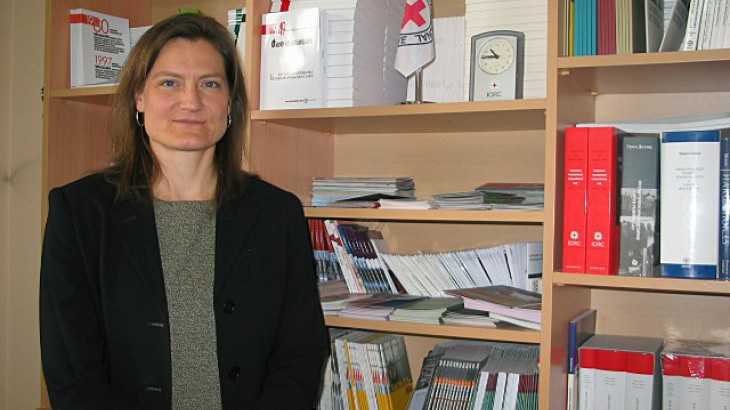Sarah Epprecht, head of the ICRC delegation in Armenia, reflects on the tragic loss of countless Armenian lives under Ottoman rule a century ago. 2015 is the centennial of what is conventionally held to be the starting date of those terrible events.
What is the ICRC’s position on the massacre of the Armenian people in the Ottoman Empire?
The events that occurred a century ago are without doubt tragic and still provoke strong feelings. From a humanitarian perspective, it is a tragedy.
In line with our mandate, we prefer to focus on the importance of remembering the tremendous suffering and loss of life endured by countless Armenians under Ottoman rule. We see this year’s centennial commemoration as a time to recognize the need to strengthen respect for human dignity and highlight the importance of efforts to prevent such tragedies from happening again anywhere in the world.
How does the ICRC classify the events in legal terms?
We are aware that there is a lot of interest in ascertaining which countries or organizations officially recognize as genocide the terrible events that took place under Ottoman rule. However, as a neutral and independent humanitarian organization, the ICRC does not take part in such debates.
The ICRC is an international humanitarian organization with a history of working in situations of violence that stretches back 150 years. What efforts did the ICRC make to assist the Armenian people back then?
One hundred years ago, the ICRC was not yet the organization that it is today. Unfortunately, at that time, we did not have the extensive field presence and proximity to victims that now characterizes our work. The situation at that time made direct assistance impossible.
Nevertheless, in the years that followed, the ICRC focused on providing relief to Armenian children. It coordinated the efforts of a number of organizations to help children in Armenia who were suffering from the effects of the First World War.
The ICRC has an extensive archive of different types of documents dating back a long time. Does it contain information about those terrible events?
The ICRC archives from that time are open to the public, so they can be consulted by anyone who is interested. The resources to be found there reflect the ICRC’s historical position and actions, which stemmed from its deep concern about the massacre of the Armenian people in the Ottoman Empire.





















































